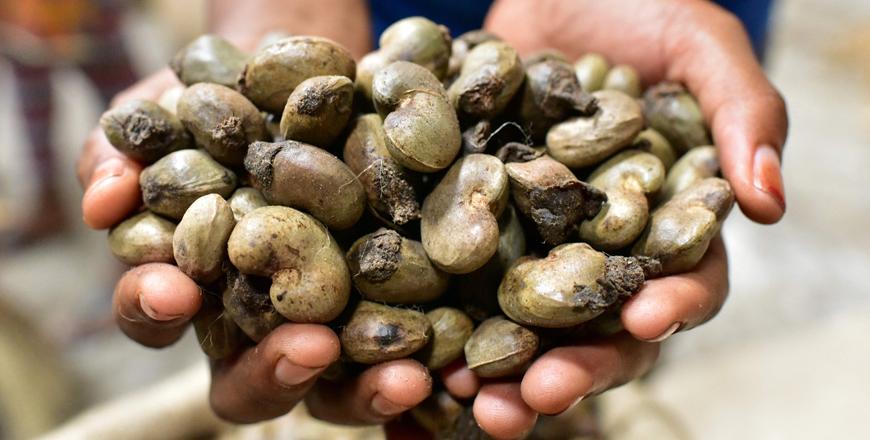- International News
- Sun-2021-04-18 | 02:51 pm

Nayrouz News Agency :
The three million African farmers who supply most of the world's cashew nuts aren't cashing in on the booming demand due to a lack of processing facilities, a UN body said on Friday.
World production and trade in raw cashew nuts have more than doubled since 2000 with African producers, led by Ivory Coast, accounting for almost two-thirds of the growth.
But the continent's farmers and exporters get only a fraction of the final retail price, according to a new report by the United Nations Conference on Trade and Development (UNCTAD).
"Countries that grow cashews but don't process them at a significant scale retain only a small share of the value created as the nut travels from the farm to store," said Miho Shirotori, who leads UNCTAD's work on trade negotiations and commercial diplomacy.
"African farmers, exporters and workers are missing out on a wealth of opportunities," she added.
Cashews thrive in the tropical climates of 20 western and eastern African countries, where about 90 per cent of the raw cashew nuts traded in the global market are grown. Behind Ivory Coast the main producers are Tanzania, Nigeria, Benin, Guinea-Bissau, Mozambique and Ghana, according to UNCTAD.
But less than 15 per cent of the continent's cashew nuts are even de-shelled on African soil.
The rest is exported mainly to Asia, where more value is added. India and Vietnam accounted for about 98 per cent of the world's raw cashew imports between 2014 and 2018, according to the report.
More than 60 per cent of the traded kernels are then roasted, salted, packaged and consumed as a snack or an ingredient in other products, in Europe and North America.
While admitting to difficulties in calculating just how much the Africans are losing, the report estimated that by the time cashews are processed in the EU their price is about 8.5 times higher than when they left the farm in Ivory Coast.
"This shows the potential for value creation in African cashew-growing countries, 14 of which are classified as 'least developed'," Shirotori said.
"And value creation can lead to better wages for workers and more money for the local economy."
Between 2000 and 2018, world trade in raw cashew nuts more than doubled to 2.1 billion kilogrammes, according to UNCTAD.













